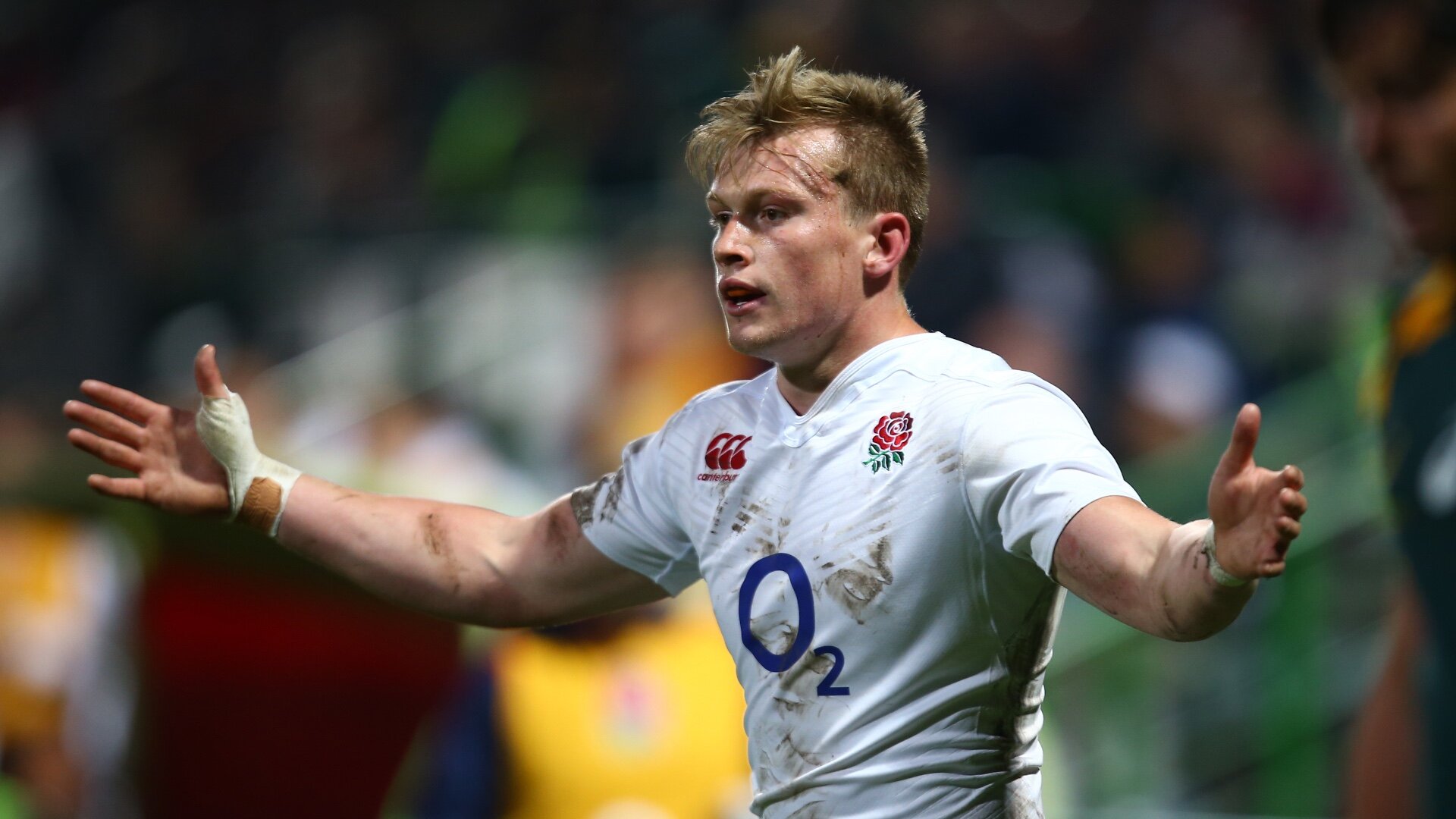How big a loss to English rugby is new Wales capture Nick Tompkins?

Losing Nick Tompkins to Wales is a blow for the English player pool – and there is no other way of looking at it.
The 24-year-old is a versatile centre with the ability to play both twelve and 13 to a high standard, he has very good attacking skills, has been honed in Saracens’ impressive defensive systems and offers an eye-catching blend of speed and footwork.
As such, it’s understandable that plenty of English fans have acted with dismay at the loss of his talent to rivals Wales, who have named him in their Guinness Six Nations squad, despite the riches on offer domestically in the Gallagher Premiership.
He has had to be patient for his opportunity with Saracens, with England under-20s team-mate Maro Itoje being catapulted into the spotlight much earlier than the centre.
When chances have come, Tompkins has rarely failed to take them with both hands. His hat-trick against Gloucester in last season’s Premiership semi-final was as potent a reminder of his considerable ability as you are likely to find.
(Continue reading below…)
The Rugby Pod take a look at some BIG transfer rumours
Despite that, Tompkins has not seemed close to an England senior call-up under current boss Eddie Jones and follows the path already trod by another of his under-20s team-mates, Ross Moriarty, by declaring for Wales after representing England at age-grade level.
The closest Tompkins has come was back in the summer of 2016 when England Saxons toured South Africa. His appearances against South Africa A did not tie him to England, as the opposition was not the designated capture side of Springboks at the time.
There is no doubt that Jones and the RFU would have liked to have Tompkins as an option moving forward. However, with the likes of Owen Farrell, Manu Tuilagi, Jonathan Joseph, Henry Slade and Piers Francis all very much in the primes of their careers, it’s unlikely that the centre would have featured prominently for England in the coming years despite his clear and obvious ability.
England fans can't fathom why Nick Tompkins has been allowed to get picked up by their Wales rivals https://t.co/BJ09qf9Jbp
— RugbyPass (@RugbyPass) January 15, 2020
With Wales opting for Hadleigh Parkes and Jonathan Davies – combined age of 63 – as their preferred centre pairing at the recent World Cup, the pathway that Tompkins has chosen makes a lot of sense for him.
Again, Jones has shown no proclivity for selecting him beyond his inclusion on the Saxons tour back in 2016, and the Australian has moved much more towards a midfield pairing of a ball-handling playmaker and a physical, hard-running carrier.
It’s a selection preference which has seemingly hurt Joseph, too, with the British and Irish Lion not playing the prominent role of late that he did earlier in Jones’ tenure.
It’s hard to say Tompkins fulfils either of those roles specifically and is much more of a rounded midfielder. His passing is solid and he is powerful enough to get over the gainline on a square angle, but he is neither of those things in the way that Farrell and Tuilagi are respectively.
It’s not a criticism. He has attributes that other players in the England mix do not, something which Wales will be very glad for, but there is a case to be made that had he not opted to switch allegiance, a senior cap may never have come with England.
The competition won’t relent either with Ollie Lawrence, Cameron Redpath, Max Ojomoh and Phil Cokanasiga among the young talents who will hope to be pushing claims for selection in the coming years, not to mention Joe Marchant at Harlequins.
Marchant had been part of the WRU’s English wishlist alongside Tompkins, Max Clark and Jonny Williams, and securing the outside centre to England prior to last year’s World Cup may yet go down as one of Jones’ best achievements as national coach.
The 23-year-old is about to depart for a loan spell in Super Rugby with the Blues, something which should only further enhance him as a player, and he brings his own array of game-breaking ability. England invested in Marchant last summer and that may well have been the writing on the wall for Tompkins who certainly has the skills and the hunger to make a success of Test rugby.
Meanwhile, England continue to build with the midfield they put together and had a lot of success with at the recent World Cup. They will also get a fascinating look at how Marchant develops in Auckland and continue to monitor the likes of Lawrence and Redpath.
“The most frustrating thing (under Gatland) was that I had never been told why I wasn’t a part of the squad."
– @chrisjonespress talks to @WillGriffJ 🏴 #sixnations https://t.co/rhoKZCJxqt
— RugbyPass (@RugbyPass) January 15, 2020
England have a large player pool and a lot of migration between with Wales, Scotland and Ireland, making situations like this one ultimately inevitable. Losing talented players may hurt a loyal fanbase, although it is better that these players be able to show what they have got at the highest level rather than wait for something that may never come in their home nation.
Maybe the blow of losing Tompkins is reinforced by Welshman Louis Rees-Zammit’s recent rebuffing of English interest, but international rugby is set to be richer for the presence of Tompkins and that is something to celebrate.
If you belong to one of the nations of haves in terms of player pools, you have to accept that every now and again you’re going to lose a player to the have nots.
WATCH: Wayne Pivac announces his Wales Six Nations squad

































